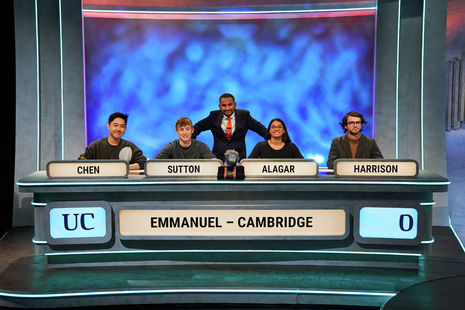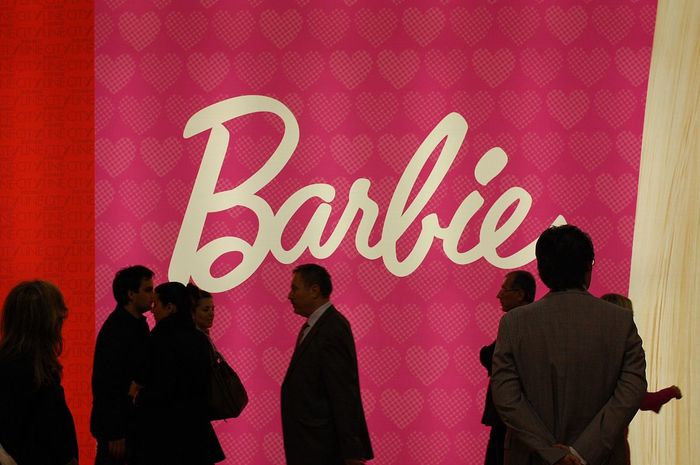Is University Challenge elitist?
Retired Durham professor Frank Coffield certainly seems to think so

Is University Challenge elitist? Frank Coffield, an emeritus professor of education, certainly seems to think so. During a yearlong campaign, Coffield argued that the programme has turned a blind eye to the BBC’s impartiality rules by allowing Oxford and Cambridge to each enter up to five teams representing their various colleges, whilst all other universities are confined to a single team.
It pains me to say this but the man has a point. Despite personally being delighted to have my own college team (go Homerton!!) to support – a team that I feel a much greater connection to than the less personalised “Cambridge University” label – there is no doubt that this convenience creates a profound unfairness in the game. This is especially true since other collegiate universities like York and Durham, the latter being where Coffield used to teach, are constricted to a single university-wide team.
This clear preferential treatment towards the country’s oldest universities is most apparent in the programme’s Christmas specials, which Coffield stressed in his letters to the show’s current presenter, Amol Rajan, and BBC Director-General Tim Davie, both of whom are Cambridge alumni. Since the debut of University Challenge’s Christmas Special in 2011, a quarter of the 168 teams that have participated in these episodes have hailed from an Oxford or Cambridge college. Thus, the odds of an Oxbridge victory are increased, as evidenced by us winning nine out of the 12 specials so far. This awkward Oxbridge bias is not a recent discovery either, with the University of Manchester expressing their resentment during the 1975 final of University Challenge, in which they finished second to Downing College, by answering every question with “Che Guevara”, “Marx”, “Trotsky” or “Lenin” in an attempt to affect the ability of the show to be broadcast.
“The programme’s affiliation with Oxbridge extends beyond its contestants”
The programme’s affiliation with Oxbridge extends beyond its contestants, with all three of its hosts having attended Cambridge. It is perhaps this which provoked Coffield’s scathing remarks in his letters to Davie and Rajan: “What was the BBC so determined to conceal? The fact that it continues to rig this quiz in favour of the already privileged. The senior executives in charge of the show ignore criticisms and continue to push their unjustifiable favouritism of the Oxbridge colleges they themselves have attended”.
He goes on to claim that this alleged bias is “symptomatic of how this country is run – in the interests of a small elite who fight to preserve their unearned advantages for their colleges and their children”.
This is where I draw the line. Even if Oxbridge alumni have certain ‘advantages’ that come with the Oxbridge name, this does not mean that they were ‘unearned’. The stereotypical notion that Mummy and Daddy are so wealthy that they shell out on average £15.2K a year to send you to private school before having you automatically enrolled into Oxford or Cambridge after your ‘gap yah’ does not represent reality in the slightest. 2023 records show that 71.8% of students at Cambridge and 68.6% of students at Oxford hailed from a state or grammar school.
It’s not the 1960s anymore when 66% of all Oxbridge students went to a fee-paying school. Times have changed and – thanks to outreach programmes that target state schools – the type of student attending Oxbridge has also changed. Ironically, it is Coffield’s own Durham University that welcomes a significant proportion of private school applicants (39.1%), coming second only to the Royal Agricultural University (39.5%).
It is one thing to criticise the workings of a late-night quiz show but to use this as an argument for ‘how the country is run’, well, that’s a bit mad.
 News / Cambridge postgrad re-elected as City councillor4 May 2024
News / Cambridge postgrad re-elected as City councillor4 May 2024 News / Gender attainment gap to be excluded from Cambridge access report3 May 2024
News / Gender attainment gap to be excluded from Cambridge access report3 May 2024 News / Some supervisors’ effective pay rate £3 below living wage, new report finds5 May 2024
News / Some supervisors’ effective pay rate £3 below living wage, new report finds5 May 2024 Comment / Accepting black people into Cambridge is not an act of discrimination3 May 2024
Comment / Accepting black people into Cambridge is not an act of discrimination3 May 2024 News / Academics call for Cambridge to drop investigation into ‘race realist’ fellow2 May 2024
News / Academics call for Cambridge to drop investigation into ‘race realist’ fellow2 May 2024





